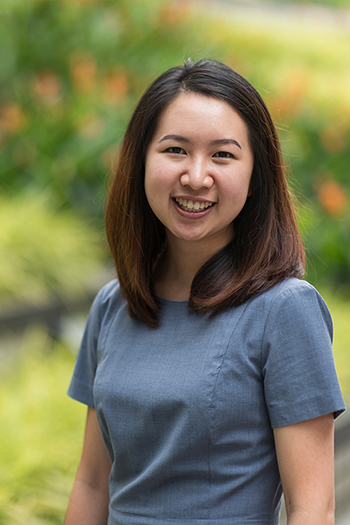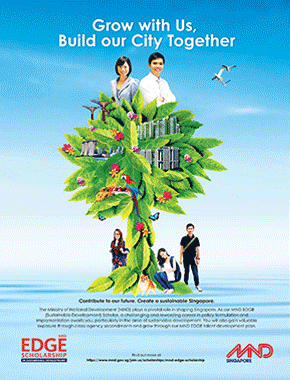With a total land area of about 720 square kilometres, land is a resource in limited supply for Singapore. Each decision regarding the use of our limited land must be considered well, as the Government will not just have to build a vibrant, liveable, and outstanding city for Singaporeans to live, work, and play in, but also a Singapore that will stand the test of time and be an endearing home for Singaporeans in the years to come. A career with the Ministry of National Development (MND) is an interesting and exciting opportunity to plan for Singapore’s future development.
To aid her role in land use planning, Rachel Liu, Manager in MND’s Strategic Planning Division, needs all the tools and experience she can get in order to make the best decisions. BrightSparks sits down with Rachel, a graduate of Cornell University, where she shares how MND’s EDGE Scholarship programme has benefitted her and what makes her job so fulfilling.
When did you develop an interest in urban development?
In school, I was interested in architecture and social issues. After my post-secondary education at Raffles Institution, I took a gap year and interned at various government agencies, architecture firms, a think-tank, and a private developer, which helped me find some grounding and context for my interests. It was through these experiences that I discovered my interest in urban studies. That also led me to the MND scholarship, where I could see change happening at the policy level.

Rachel Liu
MND EDGE Scholarship
Manager, Strategic Planning Division
Bachelor of Science with Honors in Urban and Regional Studies
– Cornell University
Can you elaborate on your roles and responsibilities in MND’s Strategic Planning Division?
I work on a range of portfolios, handling policy on matters relating to land use. My job is a balance of regulation and aspiration. Part of my work is to ensure that land and space in Singapore are used in accordance with the Government’s plans in a fair and consistent manner. Another part of my work is more aspirational – to set the direction for Singapore’s growth for the next 10, 20, 50 years – and then putting in place the policy structures to help us get there.
What are the greatest rewards and challenges of your job?
In my role, it’s clear how far-sightedness forms the bedrock of our policy-making. At the same time, much of the work we do has dynamic, short-term impact. On both sides, I’ve been able to see that change can happen, which makes the work exciting and rewarding.
As this is my first job, it can be a little intimidating to interact with people who are much more experienced. A lot of my initial concerns were about adjusting to my first job and learning how to operate effectively.
How has the MND EDGE Scholarship benefitted you?
I attended a four-year liberal arts programme where we could take classes from different colleges and piece together our own experience of college. This is reflective of my interest in urban planning, where you can study in so many different areas that are still relevant in informing your perspective of the built and natural environments. Examples include the practice-based semester I spent in New York learning urban design, where we worked with communities, practitioners, and city officials. I also studied architectural history in Rome, conservation biology in Brazil for a summer, and another summer as a horticultural intern at the Cornell Botanic Gardens.
Living and working in such varied environments has made me more open-minded. It has also made me appreciate new environments and the dynamics of different societies. Coming back, it is easier to recognise how diverse perspectives shape our environment. This is reflected in how the various roles of the MND family come together. It also extends to the work of agencies in other parts of Government, and of other private sector and community stakeholders. The scholarship has provided me with the experiences, as a student and in my career, to learn how these roles matter, and to discover that vision is important to find meaning and be effective in the role that each of us play.

